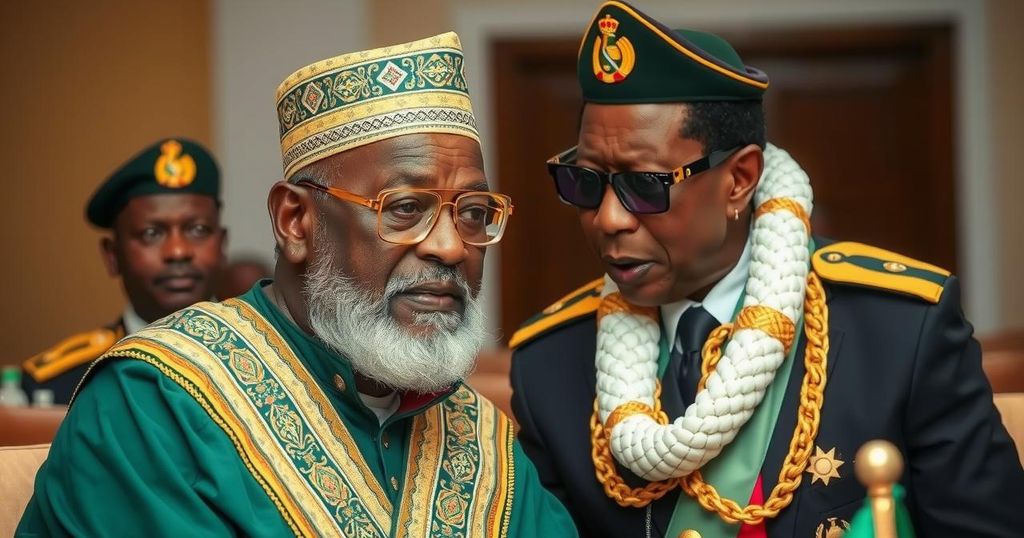Mali’s junta leader General Assimi Goïta met with Sudan’s Abdel Fattah al-Burhan during a 48-hour visit in Bamako. Both leaders face military turmoil; Goïta through a 2020 coup and Burhan following a power struggle initiated by his deputy. Their meeting reflects a shared interest in navigating their internal challenges and potential collaborations with external powers such as Russia.
On Saturday, Mali’s ruling junta leader, General Assimi Goïta, held discussions with Sudan’s de facto leader, Abdel Fattah al-Burhan, in Bamako. This 48-hour visit is particularly significant as both leaders are navigating their nations’ military challenges. General Goïta came to power through a coup in 2020, while General Burhan led a coup in 2021, establishing a military government after the ousting of Omar al-Bashir in 2019. Since then, Sudan has been embroiled in conflict, particularly following the recent rebellion led by Burhan’s deputy, General Mohamed Hamdan Daglo, against his leadership.
The political landscape in both Mali and Sudan has been shaped by military interventions over the past few years. Mali experienced a coup in 2020, leading to a regime that has opted to distance itself from French influence and foster relations with Russia and the Wagner paramilitary group. Sudan has similarly attracted Russia’s attention, particularly as Moscow assesses the stability of its support for the Rapid Support Forces amidst the ongoing conflict with Burhan’s army. Understanding these dynamics is crucial in grasping the nature of their recent meeting and potential collaboration.
The meeting between General Assimi Goïta and General Abdel Fattah al-Burhan underscores the complex military challenges facing both nations. Their convergence reflects broader geopolitical shifts within West Africa and the Horn of Africa as they seek to enhance bilateral relations while contending with internal conflicts. The outcomes of this visit may have ramifications for their respective regimes and their alliances with external powers, especially in relation to Russian influence in the region.
Original Source: newscentral.africa






